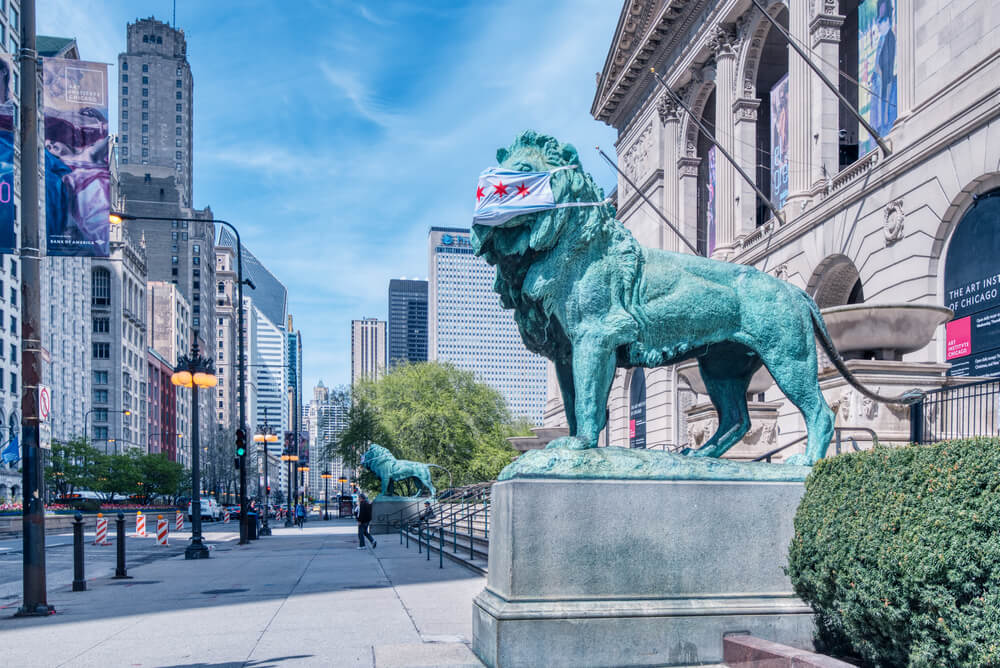



Get new exclusive access to healthcare business reports & breaking news




The Covid-19 pandemic has had an impact on everyone in the world. The full lockdown and social distancing rules enforced everywhere hurt most industries too.
In Chicago, and everywhere else in the US, the impact was particularly felt by the brick and mortar casinos and their customers. Consequently, the institutions that depended on them for revenue have also felt the impact. Just this week, the State of Illinois reported a loss of a whopping $200 million in gambling tax revenue.
However, despite the 13.4% loss of revenue due to Covid-19, Chicago recorded a rise in revenues earned from online sportsbooks. The report showed that since the start of the lockdown in March, there was a rise in online gambling and betting popularity.
State analysts reported that the five online sportsbooks in Chicago recorded an over 90% increase in the number of customers, according to Chicago Sun-Times.
There is a lot of information available on online gambling and betting, so it must have been easy for punters to switch to online gambling. You will also find reviews and comprehensive guides and information on popular sites like Unibet sportsbook.
The Illinois Gaming Board has received a record number of online casino operations applications since June. Most of the applications are being traditional casinos seeking to offer sports betting services.
Many sporting events have resumed with the partial lifting of lockdown and relaxation of social distancing rules. Casinos and sportsbooks are looking to capitalize on this development to salvage their businesses.
However, the gaming board is not scheduled to meet until November 5th when they will decide whether to issue licenses to the applicants.
Chicagoans have had a hard time with the lockdown. The city was forced to reinstate several coronavirus restrictions in July after an uptick in new cases. The move meant people had to stay home and find alternative ways to lead their everyday lives online.
Online gambling was just one of the many ways that helped them pass the time. In the same way most people alleviated stress by streaming TV shows and movies, gamers played online games, and punters placed their bets online.
In many ways, alternative online services helped keep low cases such as gun violence that Chicago Mayor Lori Lightfoot attributed to lockdown-aggravated stress.
“Obviously, the pandemic of COVID-19, but unfortunately gun violence in our city continues,” Lightfoot was quoted by CBS News, “All the other tools that we would use to support that public health infrastructure has been singularly focused on fighting COVID.”
The situation, she implied, could have been worse if everything was at a standstill.
As ironic as it sounds, Chicagoans, and Americans in general have had an internet revolution forced down on them by a virus. Being stuck in their homes with no movie theatres to go to, no restaurants to eat out, and no events to attend has had a silver lining.
There has been a drastic shift in the behavior of the average American. This professional observation is based on Internet usage statistics published by The New York Times.
For starters, more people have been forced to turn away from the phones and actually look to connect through other services. The steep rise in the number of people using video chat services for personal communication is stark evidence that they desire to do more than just text.
The greatest beneficiaries of the shift in social connectivity behavior are apps that have lingered in obscurity for ages. These include Google’s video chat application Duo, and Houseparty, an app that allows individuals to play casual games while on a video chat.
It is undeniable that the COVID-19 pandemic brought with it a deep sense of fear and anxiety among Americans. The City of Chicago foresaw the effects of such an unpopular but necessary lockdown early enough.
During the first peak of the cases of Coronavirus in mid-May, the city issued an advisory on mental health and advice on how to cope with COVID-19. The Department of Public Health encourages Chicagoans to view anxiety, sadness, and accompanying negative emotions as normal.
“Remind yourself, your family, and your friends that feeling sad, anxious, overwhelmed or having other symptoms of distress such as trouble sleeping is normal.” the statement reads, “If symptoms become worse, encourage them, and yourself, to reach out for support and help”.
Among the solutions to these problems the Department of Public Health advocates include:
The coronavirus pandemic has put almost everything on hold. Bars and clubs closed, fast-food joints served takeaway orders only, and casinos shut down altogether. However, the closures did not stop drinking, fast food, and gambling addicts from getting their fixes online.
A report released by addiction experts on drugfree.org shows that despite the closure of bars and social isolation took a toll on alcohol, fast food, and gambling addicts. The findings prove that the convenient online services may have had more negative effects on recovering addicts.
The City of Chicago has made great strides to accommodate addicts and to support recovering addicts that may be tempted to backslide in the face of COVID-19.
One way has been to mobilize resources to provide the much-needed economic assistance to rehab and addiction recovery centres. This move has helped addiction recovery and rehabilitation centres to stay open throughout the COVID-19.
Staying at home, keeping social distancing, and seeking services online helped prevent the spread of COVID-19 virus around the world. The upside is that many online-based industries grew while their brick and mortar competitors suffered.
In Chicago, this is apparent in the tax revenue differences between the two industries. However, while online services have had their social benefits, they have also had downsides that the city will have to address while navigating the societal impacts of the growth of convenient online services.